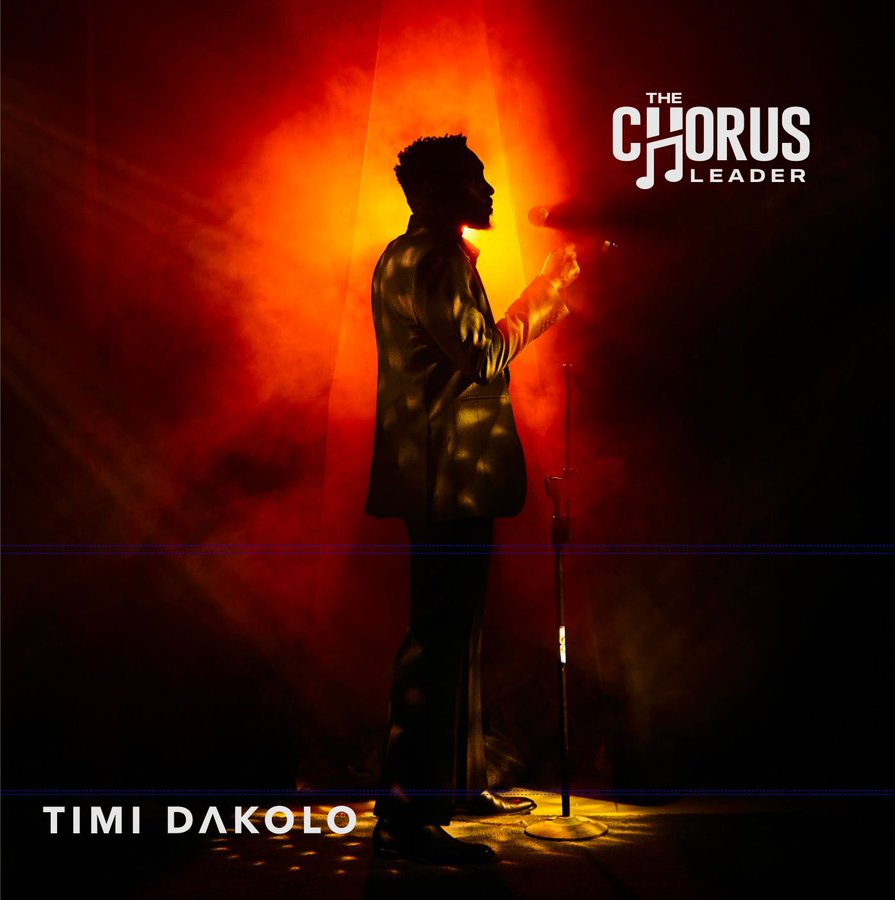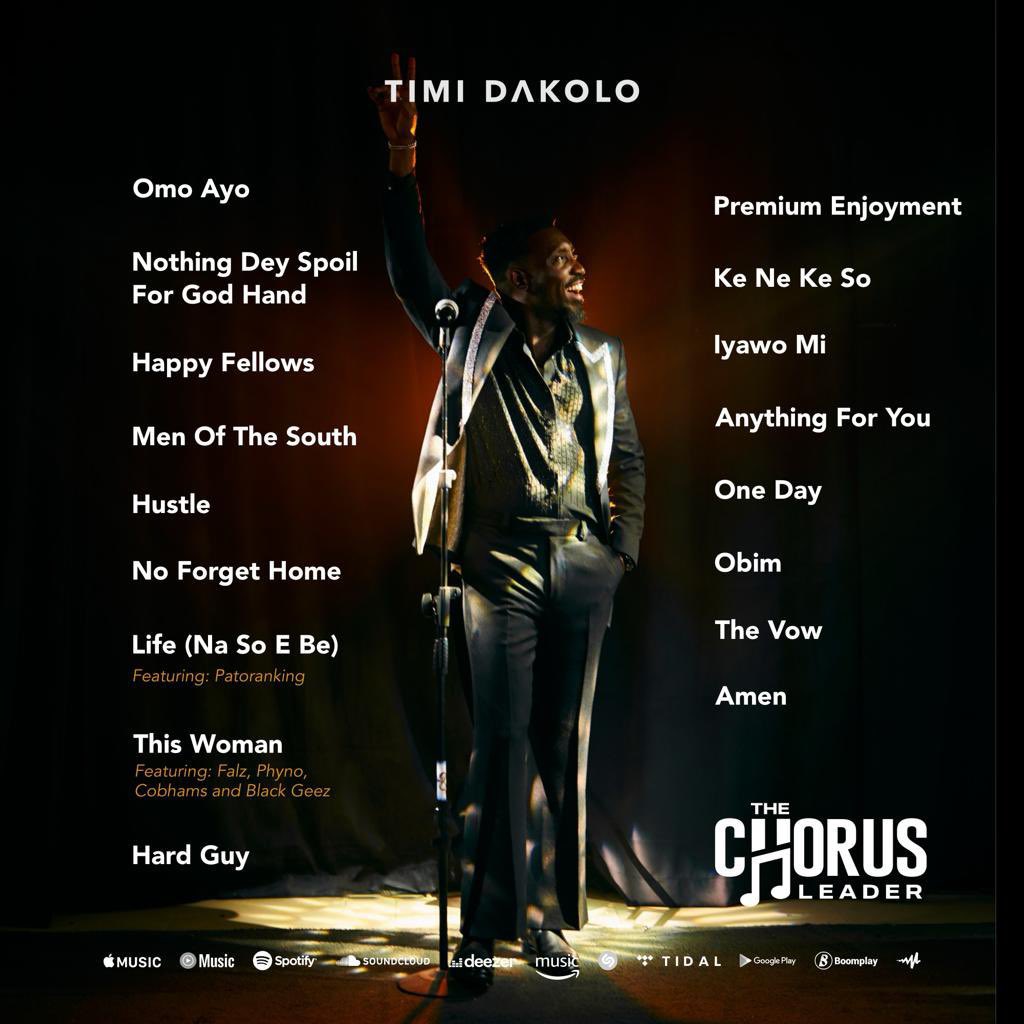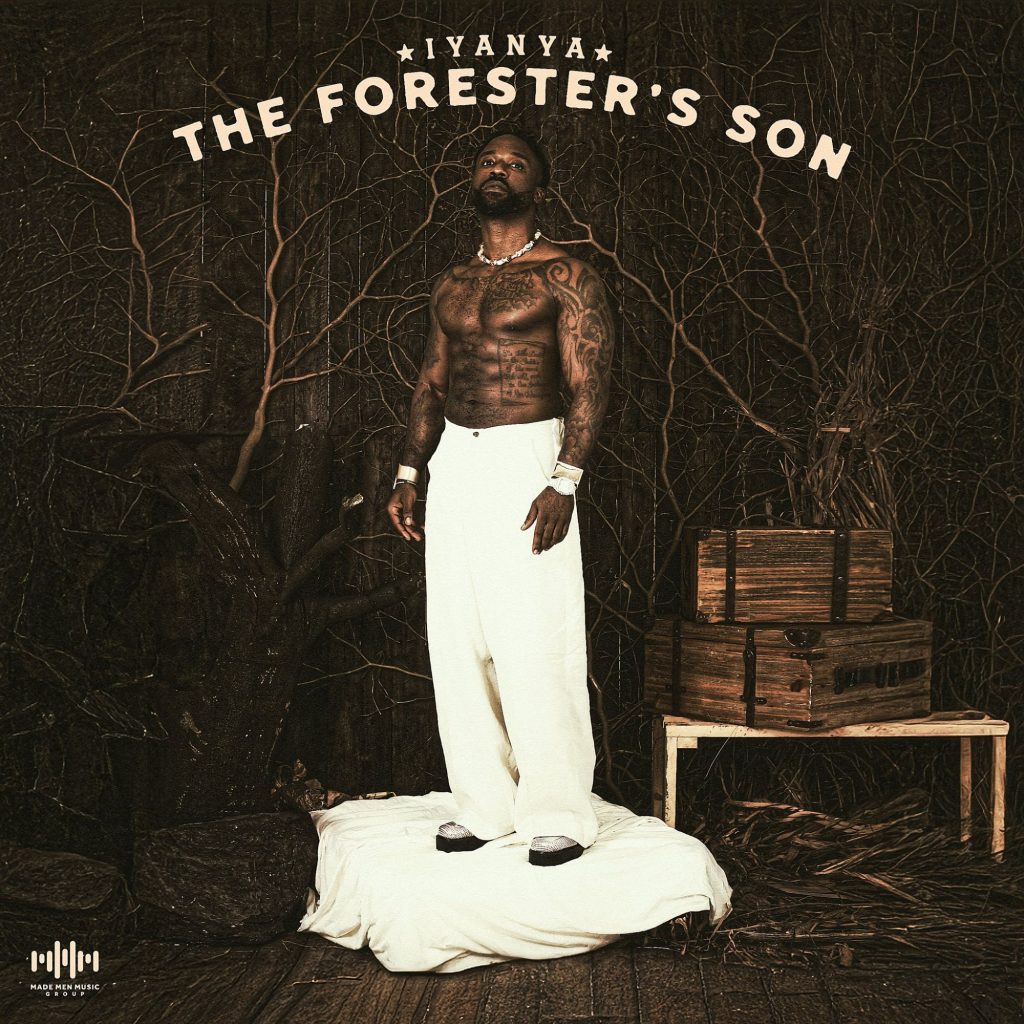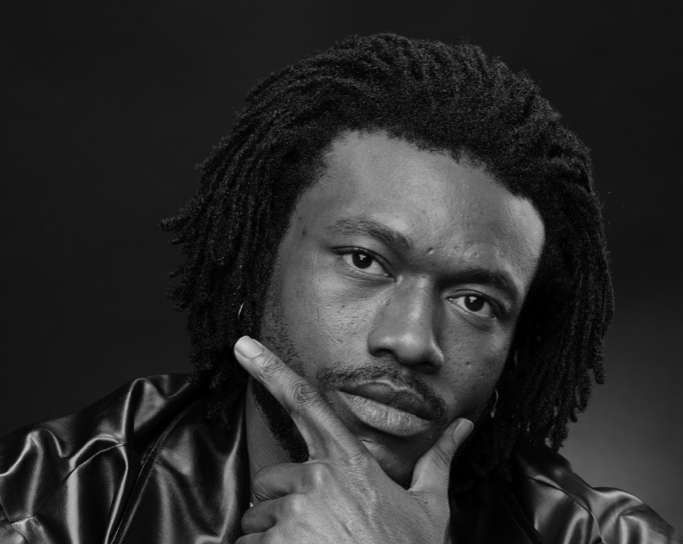Timi Dakolo’s artistry is a pocket laden with rich treats for romantics and the pious. While the latter treats were non-existent in the wake of his Idols West Africa triumph in 2007, they have become more definitive in recent years.
His love songs are markedly distinct from many others in the industry, seemingly geared towards married folk. The gospel shelf of his discography is not as expansive, but has sufficed to land Dakolo performances at multiple editions of The Experience gospel concert. To consolidate on his collection of resonant singles and reinforce his evolving artistic identity, Timi Dakolo curates The Chorus Leader.

On The Chorus Leader, Timi Dakolo draws on Afrobeats, Afrobeat, highlife and gospel to predominantly explore the themes of love, faith and culture. The seventeen-track project interestingly features ‘Iyawo Mi’ and ‘The Vow’, released in 2014 and 2016 respectively, as well as ‘Everything (Amen)’ and ‘Obim’, both released in 2021. The fourth track, ‘Men of the South’, is a more recent predecessor, given its early 2024 release. Patoranking, Phyno, Falz, Cobhams Asuquo and Black Geez serve as the guest acts, with media personalities Ebuka Obi-Uchendu and Noble Igwe also gracing the project. Magical Andy and Cobhams Asuquo handled the bulk of the album’s production, with additional contributions from Yaso, Mr. Soul and Kayode Ojo.

A choral surge offers the promise of an immersive experience on ‘Omo Ayo’ (a Yoruba expression meaning ‘child of joy’). On the track, Dakolo affirms his status as a child of joy regardless of life’s endless troubles. He sings, ‘Though the nights are getting longer’/’Every time I try to spend, another one will drag me down’/’But I no go change or wipe this smile from my face’/’I go still remain omo ayo.’ His calm delivery becomes impassioned in the second verse, where he dwells on the hurt listeners can relate to. Ultimately, the track serves its purpose and effectively positions Dakolo as a choral leader.
Without delay, the album receives an upbeat infusion with the gospel track, ‘Nothing Dey Spoil For God Hand’. Timi Dakolo retains the joy-amidst-hardship consciousness on this track, which he performed at The Experience 18 in December 2023. It is praise session gold, with Dakolo encouraging listeners to fully confide in God to preserve and amend. He gives the assurance that the divine touch supersedes human efforts. What follows, ‘Happy Fellows’, is an Amapiano record with a less lofty ambition than the previous tracks. The expectation is presumably for the fully immersed listener to simply choose happiness and get their feet busy.

The fourth track, ‘Men of the South’ is a highlife record primarily geared towards listeners from Nigeria’s South-South region. For concerned onlookers, Dakolo repeatedly asserts, ‘We no dey craze o’/’Na love dey do us o’. The background vocals render, ‘Wherever you go’/’Wherever you go’/’Let your money flow’/’Let your money show’. Dakolo breaks ground, paying unprecedented homage to his cultural heritage. He also doubles down on the financial sentiment on the Afrobeat-fueled track, ‘Hustle’. He reminds listeners, ‘If you must chop, you must work’/’Money no go come meet you for domot’.
Timi Dakolo does not let go of the Afrobeat soundscape in a hurry, retaining it on ‘No Forget Home’. Qualifying the preceding tracks, Dakolo admonishes listeners to stay grounded amidst the search for wealth. There is more admonishment on the Patoranking-assisted ‘Na So E Be’, on the need to be cautious of ill-meaning people. Sadly, Patoranking’s contribution is minimal and leaves much to be desired.
As one would observe in hindsight, The Chorus Leader takes an unrelenting romantic turn, beginning with ‘This Woman’. This track features four guest appearances. However, Falz stands out with his classic humorous take on hip-hop (‘Wait first, ko le jabo’/‘Me I got your back, I’m a chiropractor’). Nonetheless, the track is a weak start to the ensuing romance blitz, and one of the album’s least memorable offerings. Thankfully, ‘Hard Guy’ offers some improvement in storytelling and delivery. On the track, Dakolo chronicles the gradual softening of a tough guy act. The next track, ‘Premium Enjoyment’, however suffers a similar fate as ‘This Woman’, coming off as a filler track.
The slow-paced eleventh track, ‘Ke Na Ke So’, is a refreshing change of pace and a love letter to Hausa listeners. More earnest than the preceding tracks, Dakolo coasts on piano keys, promising to be the best lover possible. It is a fitting forerunner of ‘Iyawo Mi’, which needs no introduction among habitual guests of Nigerian weddings. The inclusion of the ten-year-old single in the album is a curious one. However, listeners may not mind much due to the song’s sheer quality. It sets a high bar, which the next track, ‘Anything For You’ does not meet.
For the album’s final stretch, ‘One Day’ saunters in with triumphant dancehall pomp. Here, Dakolo steps into the shoes of a lover holding his head high after the end of an relationship. He takes comfort in the confidence that his lover would return one day, undettered by how long it may take. ‘One Day’ comes off as energetic and optimistic for a song about an ended relationship, standing as one of the album’s best yields. Dakolo carries his lover boy momentum into the Eastern love letter, ‘Obim’. On paper, this song is a seamless fit for Eastern traditional weddings and continues the redemptive run of the album’s latter half.
The seven-year-old penultimate track, ‘The Vow’ takes the baton. Without a doubt, it is one of Timi Dakolo’s best records across board – writing, delivery and production. On a micro level, it is easily one of Dakolo’s best vocal performances on the album. He pledges, ‘I promise to be true’/’To give my all to you’/’No matter what they say’/’This heart belongs to you’. Over seven years later, Cobhams Asuquo deserves much credit for his production on this record. Timi Dakolo brings the album full circle with the gospel record, ‘Everything (Amen)’. Brimming with optimism and faith, the track is a worthy closing track.
Overall, Timi Dakolo brings his versatility to the fore on The Chorus Leader and stays true to the title. While his efforts at cohesion are fairly commendable, the album’s second half pales in comparison to the first. At seventeen tracks, the album would have benefitted from the exclusion of ‘Happy Fellows’, ‘This Woman’, Premium Enjoyment’ and ‘Anything For You’. On a sentimental level, it is beautiful to see Dakolo give a home to some of his finest tracks.






